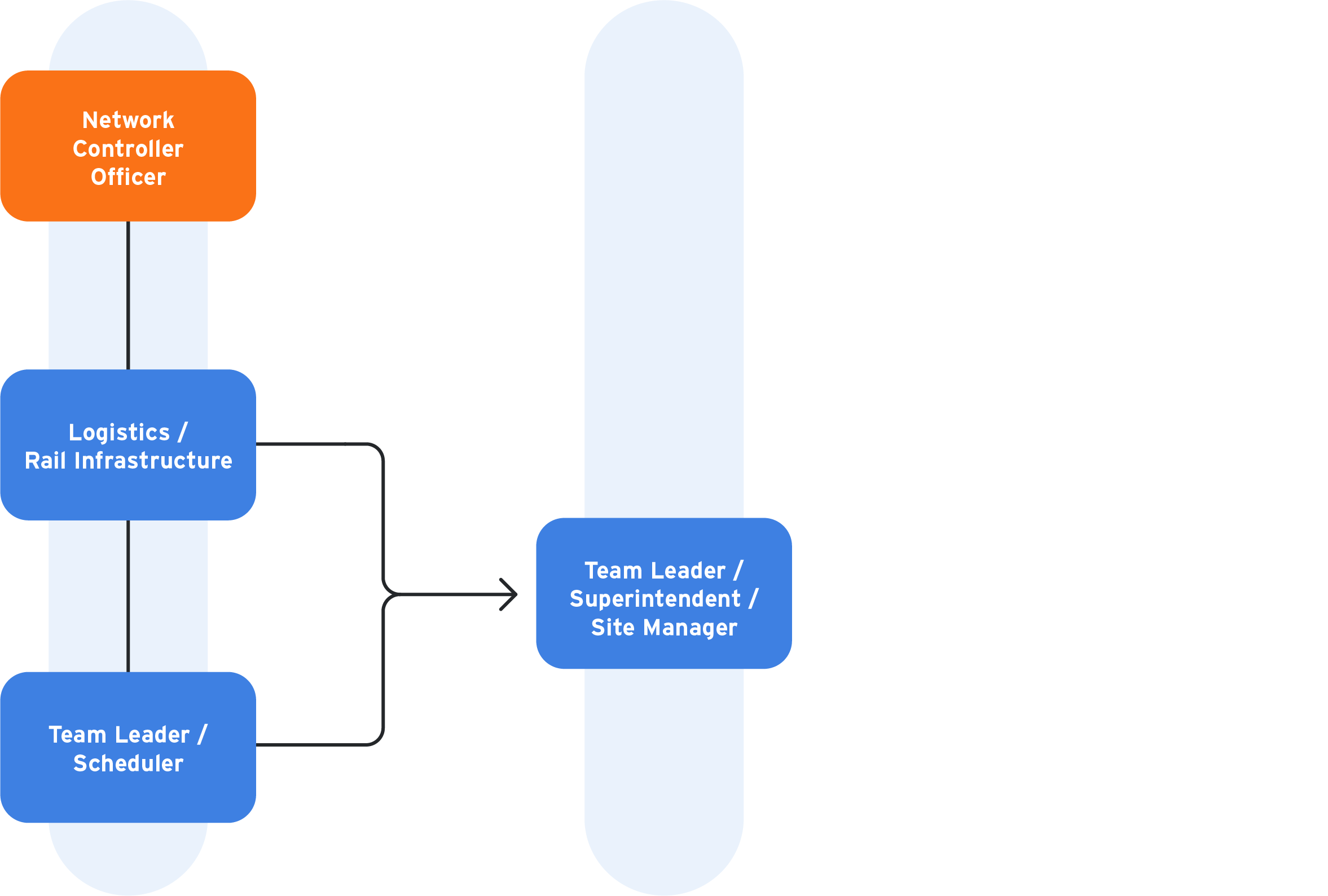
The role
Tasks include:
• directing movements of trains
• communicating with train drivers and signallers to ensure safe movements of trains
• developing and recording movements of trains
• authorising and controlling any activity taking place on railway tracks
• liaising when appropriate with emergency services.

Skills required to be a network controller
- Have a systematic approach to problem solving
- Ability to give clear and concise verbal directions
- Able to sit or stand for extended periods
- Work well under pressure and stressful situations
- Quick decision-making processes
Minimum requirements
Network controllers are generally trained internally.
Training includes competencies from the TLI40921 - Certificate IV in Rail Network Control and some train controllers may receive this qualification after completion of training.
Employees who have completed a TLI32821 - Certificate III in Rail Operations may be credited up to four of the six core units in the Certificate IV.
Employers recruiting experienced network controllers may require or prefer candidates to hold a Certificate IV in Rail Network Control.
Optional additional qualifications: TLI50621 - Diploma of Rail Operations Management, which has a specialisation in Network Control.
What a network controller's career progression can look like
Network controllers may look to advance their career into jobs such as rail access planner or project planner.

What do I do next?
Our findings include information from the Australian Industry Standards. Take a look at the rail access planner report for a deeper understanding of network controller roles.
For more information on becoming a network controller:
- find out more about train controllers on the Work in Rail website
- talk to your careers adviser
- get in touch with your union
- if you already work in rail, talk to your employer.
